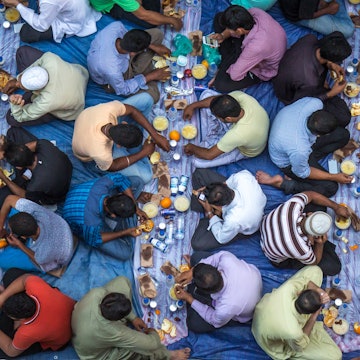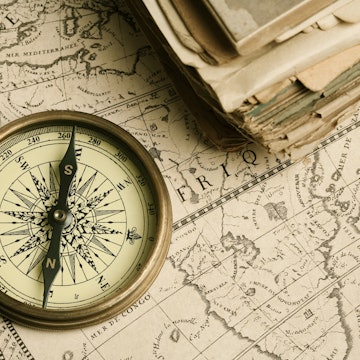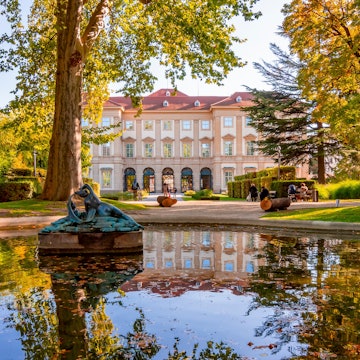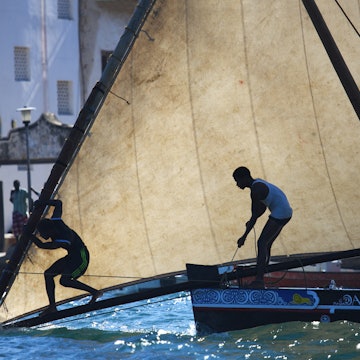

Tharik Hussain gazes out over Mina © Tharik Hussain
The eagerly awaited third instalment of Tharik's Hajj diaries sees his experience of performing the Hajj proper. He came down with the infamous Hajj flu and had to take some time out to recover; read on for his insight into performing this ancient pilgrimage for the first time, alongside his mother.
If you've missed on the first instalments, you can catch up with Tharik's initial invitation to the Hajj and his journey to Saudi Arabia with his family.

The Abdul Aziz Bridge was full of men wrapped in white sheets taking in the awesome views of the tent city of Mina, the colour of their ihram outfits matching the sea of identical snow white cones sprawled out below us. Hemmed in on all sides by steep hills of granite, the tents were punctuated only by the sand-coloured minarets of the Masjid al Kuwaiti.
It was past the mid-afternoon asr prayer and the heat of the day had begun to subside. Having entered the state of purity again and arrived in Mina in the dead of the night chanting the talbiyah, the Hajj proper had started for us. Most Hajjis had then spent the morning in ibada (worship) inside the cramped and congested tents, and now many had come out to stretch their legs.

Some were on phones updating loved ones, others photographed themselves against the iconic tent backdrop, but most simply stood and stared, lost in their thoughts. Behind them, the last of the coaches ferrying 2.5 million people from Makkah to Mina roared past. They would be back soon to repeat the feat three more times, taking the hajjis to Arafat then Muzdalifah and finally back to Makkah – the equivalent of moving the entire population of Namibia to four different spots over the course of five days.
Mina is where the Hajjis come to contemplate, worship and rest, just as Muhammad had done in the 7th century, ahead of the most important day of the Hajj.

‘Being at Arafat on the 9th of Dhu’l Hijjah is the only act of the Hajj that cannot be missed. If you do, you will have to come back next year to perform the Hajj again,’ our Sheikh had reminded us.
Any other act of the Hajj could be missed and compensated for through various ‘fines’ – mostly involving feeding the poor – but missing the day of Arafat was not an option.
The poor were at the forefront of my thoughts as I made my way down from the bridge into the forecourt of the Kuwaiti mosque. Hundreds of unofficial hajjis had pitched up here. African and Asian women sat on reed mats, nursing children and eating pre-prepared travel meals. In another age, they would be cooking their meals here, but that was banned after a fire in 1997 – started by exploding cooking gas canisters – which killed around 200 people.

The sky was now turning a delicious pinkish red. I tiptoed around resting hajjis, past an amputee using shoe heels to protect his knee stubs, to sit on a set of clean stairs near the wudu area. The air was filled with the waft of liver being fried with onions and peppers in one of the eateries behind us. Beside me sat a heavily moustached Pakistani man staring out towards the sculpted skyline of the mountains beyond the mosque. I followed his gaze and together we watched the birds dancing about them.
‘My name is Abid, I’m a banker from Islamabad,’ he said, after I introduced myself. ‘I’ve come alone. The children are too young for this. And you?’
As I began telling Abid bhai (honorific ‘brother’) my story, the adhan for the sunset prayer began, stirring Hajjis from their impromptu naps. They stood up and shook off their rugs before shuffling over to the wudu queue which quickly doubled in length.
Abid bhai led me to a spot beside the stairs, where a Hajji offered us his place to pray. We smiled and thanked him before standing in silence ahead of the iqama (call to start the prayer).

Abid bhai spoke perfect English and was clearly an educated man. His soft, manicured skin told me he had lived a good life. When we departed, he gave me an intense hug, one that seemed to carry much sadness, and when it was finished, Abid bhai said nothing. Maybe he couldn’t. He just cupped his hands together and looked skyward. He wanted me to pray for him and I nodded, promising I would.
That night, as I lay in a tent in camp 41a atop fold-up brown foam ‘beds’, inches from Hajjis either side of me, I thought of Abid Bhai again, along with all the others I had promised to remember on the Day of Arafat, now mere hours away.
It was in Arafat that Adam and Eve were forgiven by God and where the Prophet delivered his final sermon, disclosing the last divine revelation to complete the Quran, before asking those present to bear witness that he had faithfully delivered the message entrusted to him by his creator.
Centred around Jebel ar Rahma – the mountain of Mercy – Arafat is where us Hajjis would assemble tomorrow as a reminder of the Last Assembly (judgement day), a place where every request made by the Hajji on the 9th of Dhu’l Hijja is said to be granted.
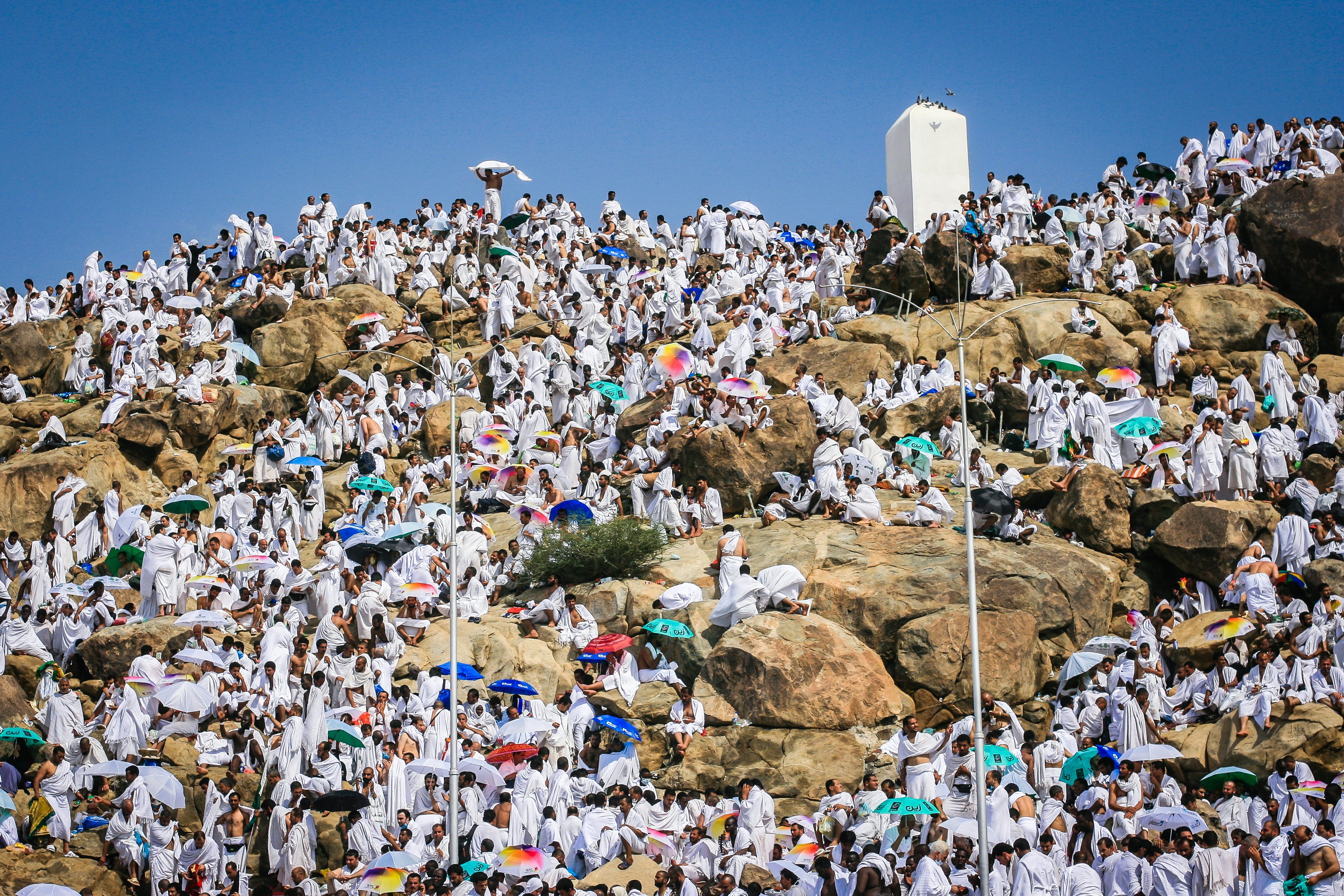
Knowing this, I had given friends and family the opportunity to privately send me their ‘requests,’ promising to deliver them in person. I wrote down every request I received: an exercise that truly humbled me. People had been extremely candid and trusting, and the requests left my own list looking a lot less urgent.
I added Abid bhai to the list and began running through some of the others in my head as I lay there in the dark, only the sound of the industrial air-conditioning vents and the occasional cough breaking the silence.
I was again reminded of just how privileged and blessed I really was. I didn’t have to pray for any of my children’s health, nor that of a parent; my mother was in the tent next door, my marriage wasn’t on the rocks and no traumatic disaster had befallen me. In fact, barring the request for the safe and healthy birth of my third child, I decided if there was a queuing system, I would be happy for God to put my requests at the back of it.
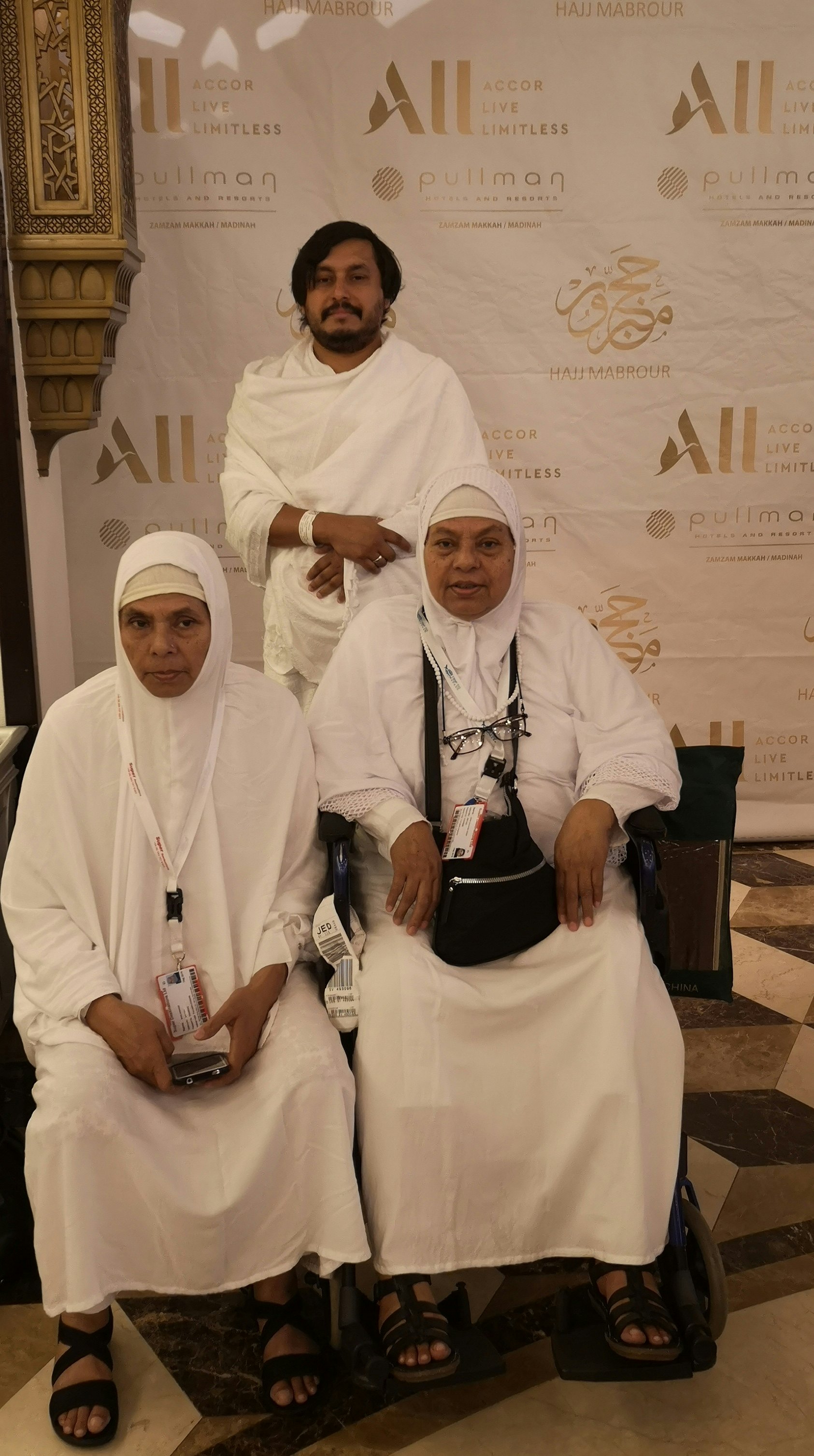
When I eventually drifted off, I managed to close my eyes for no more than an hour before I was roused by the urgent and loud call of ‘Wake up, brothers. It’s fajr time!’
Bleary eyed and disorientated, we made our way to the camp’s shambolic toilet and shower facilities to wash and prepare for the sunrise prayer and the day of reckoning. Soon the buses would arrive to ferry all 2.5 million of us to the plain of Arafat. Our first day of the Hajj was over, but the main one was just about to start.
Catch up on the other five instalments now:














